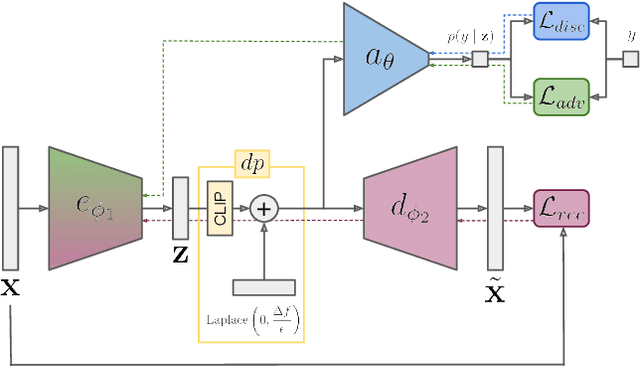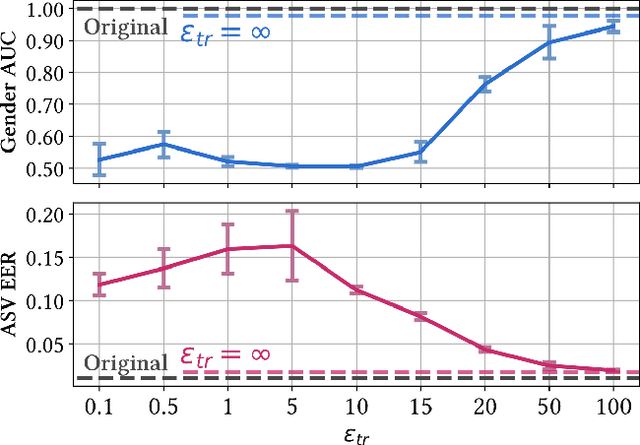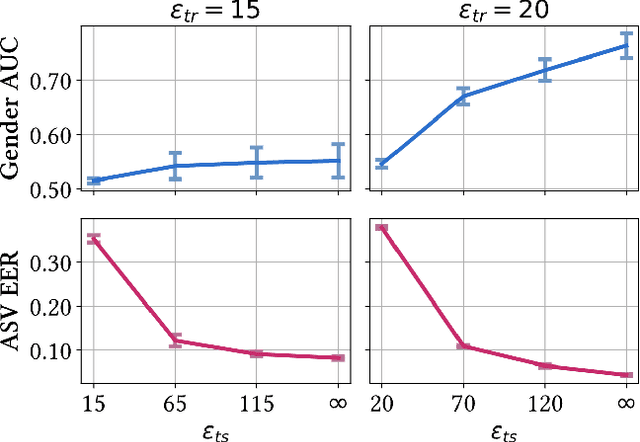Differentially Private Adversarial Auto-Encoder to Protect Gender in Voice Biometrics
Paper and Code
Jul 05, 2023


Over the last decade, the use of Automatic Speaker Verification (ASV) systems has become increasingly widespread in response to the growing need for secure and efficient identity verification methods. The voice data encompasses a wealth of personal information, which includes but is not limited to gender, age, health condition, stress levels, and geographical and socio-cultural origins. These attributes, known as soft biometrics, are private and the user may wish to keep them confidential. However, with the advancement of machine learning algorithms, soft biometrics can be inferred automatically, creating the potential for unauthorized use. As such, it is crucial to ensure the protection of these personal data that are inherent within the voice while retaining the utility of identity recognition. In this paper, we present an adversarial Auto-Encoder--based approach to hide gender-related information in speaker embeddings, while preserving their effectiveness for speaker verification. We use an adversarial procedure against a gender classifier and incorporate a layer based on the Laplace mechanism into the Auto-Encoder architecture. This layer adds Laplace noise for more robust gender concealment and ensures differential privacy guarantees during inference for the output speaker embeddings. Experiments conducted on the VoxCeleb dataset demonstrate that speaker verification tasks can be effectively carried out while concealing speaker gender and ensuring differential privacy guarantees; moreover, the intensity of the Laplace noise can be tuned to select the desired trade-off between privacy and utility.
 Add to Chrome
Add to Chrome Add to Firefox
Add to Firefox Add to Edge
Add to Edge